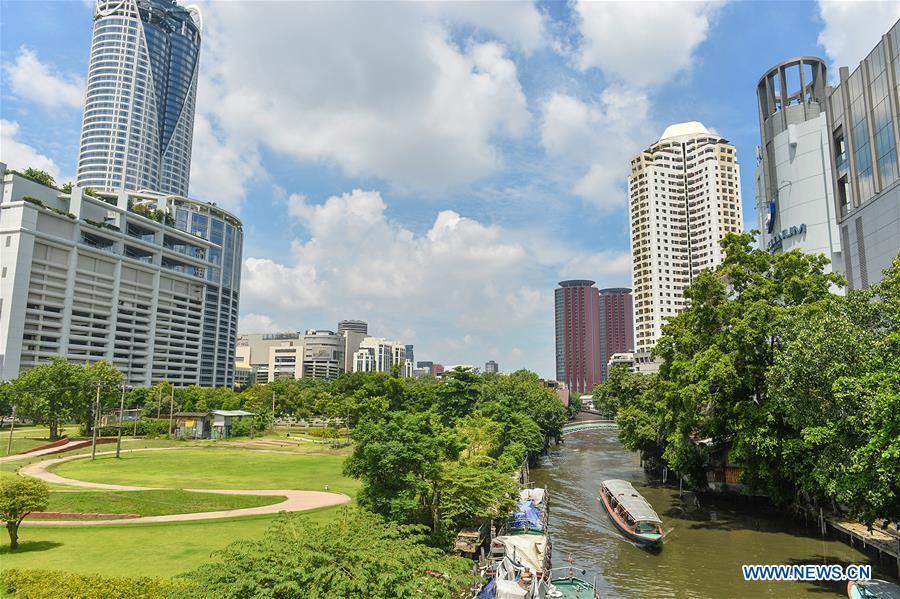
A boat sails on a canal in Bangkok, capital of Thailand, on Sept 2, 2020. (Photo: Xinhua)
BANGKOK -- The Regional Comprehensive Economic Partnership (RCEP) trade agreement means a big opportunity for Thailand, leading trade and investment into the country, a Thai expert has said.
Wisan Bubpwaet, senior consultant of Thailand Development Research Institute, told Xinhua on Tuesday that RCEP is complementary to the ASEAN Economic Community (AEC), offering more market diversification.
ASEAN refers to the Association of Southeast Asian Nations, grouping Brunei, Cambodia, Indonesia, Laos, Malaysia, Myanmar, the Philippines, Singapore, Thailand and Vietnam.
"The AEC members compete with each other, yet they have similar product, natural resources, labor skills and service structures. Thailand and other AEC members need a wider market beyond the AEC," said Wisan.
He said RCEP, a broader market including 15 countries with a higher combined GDP than other regional markets, has the potential to be maintained and deepened.
RCEP is a specific deal that excludes trade uncertainties, allowing member countries to trade freely under the same and equal rules, said Wisan, adding that the trade pact marks a significant stride towards multilateral free trade for regional countries including Thailand.
RCEP is a golden chance for Thailand, as it is an ASEAN-centered agreement, said Wisan.
Meanwhile, the Kasikorn Research Center, a Thai think tank, said RCEP makes Thailand the preferred manufacture base in Asia, based on a positive trade balance in automotive parts, petrochemicals, tourism, agriculture, food and retail industries.
These are the sectors in which non-ASEAN trading partners are interested in expanding their production bases, while industrial estates, power plants and transport are also expected to enjoy indirect benefits, said the research center.
Ten ASEAN member countries and China, Japan, South Korea, Australia and New Zealand on Sunday signed RCEP, a mega trade pact covering almost 30 percent of the world's population as well as about 30 percent of global GDP.
RCEP will progressively lower tariffs and aims to counter protectionism, boost investment and allow freer movement of goods within the region.


